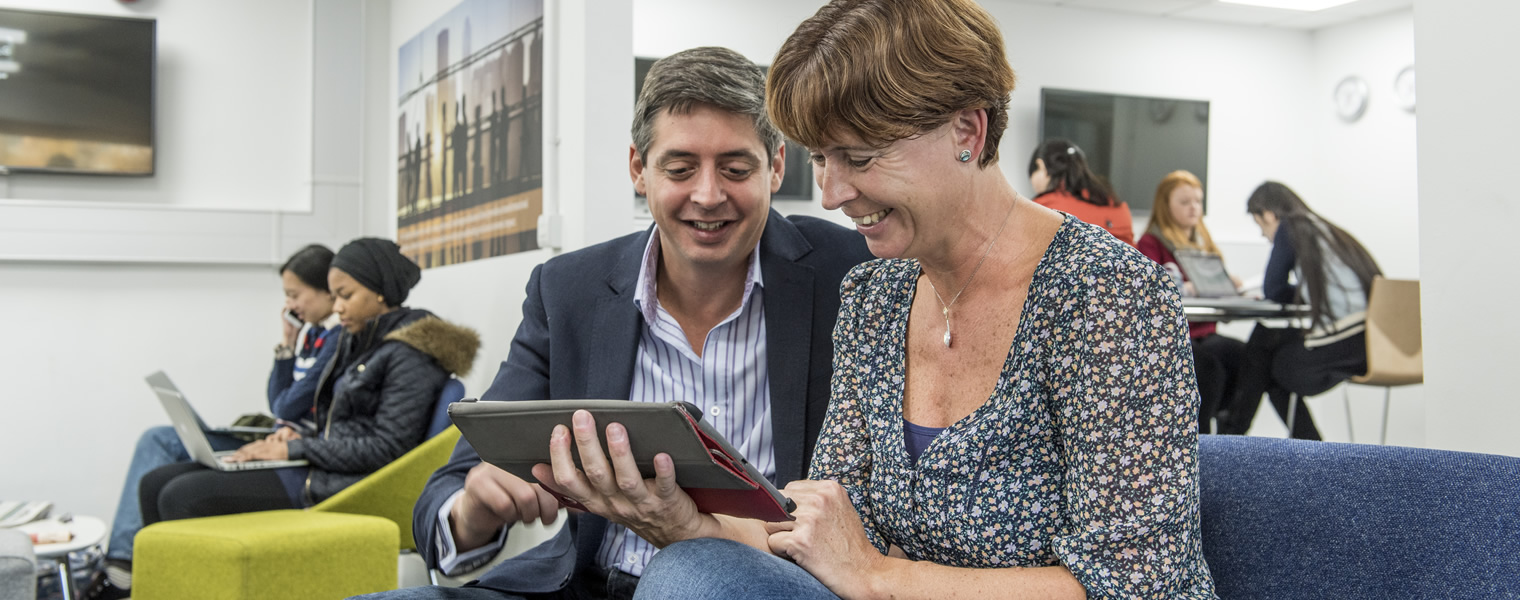Hartley News Online Your alumni and supporter magazine
In the last edition Southampton Connects discussed the communication needs of Generation Z, living at the centre of a network of people, devices and services which shape how they find, store and use information; communicate and work together and create, present and share ideas.
Whether ‘Native or Immigrant’ (Prensky, 2001), ‘Resident or Visitor’ (White & Le Cornu, 2011), Gen Z or Baby Boomer, the learner and the technologies used for learning cannot be separated, they are equally essential elements of the learning process. This led Connects to question if the University needs to adapt current communication and educational styles to captivate this audience. There has since been a resounding “yes” from across the University. Lisa Harris and Nic Fair of the Web Science Institute contacted Connects to tell us about their innovative ‘Living and Working on the Web’ module that is meeting this very need.
The Living and Working on the Web module has no lectures, no exams, no essays and consists of a predominantly online experience for students. Each student researches a topic question and then writes a blog on their thoughts on the answer – sharing their ideas and information in their own way.
The next step is for students to read and comment on their classmates’ blogs, which leads to a critical discussion among the group. Students then reflect on the development of their knowledge and understanding of the topic as a result of the collaborative, social learning process. Finally they receive targeted feedback from their tutor within 48 hours of the end of every topic – sent via Google Docs.
The cycle then continues, covering five topics (one every two weeks), supplemented by weekly voluntary ‘drop-in’ sessions and student-tutor interaction via Twitter.
Alex Neill, Vice-President (Education) comments:
This is an excellent example of innovation in education, with very high satisfaction rates among participating students.
Feedback from students has been overwhelmingly positive with comments like:
“The different teaching style was a breath of fresh air.”
“Loved that is was all online!”
“Best thing – being able to interact with other students online.”
“I liked how Twitter became a key tool for this module and helped with engagement among students.”
“Extremely relevant to the modern-day graduate.”
The Living and Working on the Web module is part of the Flexible Learning programme at the University, originally known as Curriculum Innovation. It was started in 2011, with the aim of better preparing graduates for a dynamic digital future – one governed by a need to repeatedly adapt and learn in response to rapid social and technological developments.
Living and Working on the Web has now run nine times for nearly 350 students, including three larger cohorts based in Singapore. The module is premised by the notion that: “the most authentic journey is that by a group of people working together with technologies in explorations which are not wholly predetermined” (Gillen and Barton, 2014). It aims to socialise students into the use of the Web as an instrument for learning, networking and enhancing their online profile, and has a focus on developing digital literacies.
Web Science has also been integrating massive open online courses (MOOCs) into its standard courses to good effect and with high levels of student satisfaction.
About Lisa Harris
Deputy Director of the Web Science Institute, Associate at ILIaD and Programme Leader of MSc Digital Marketing. MOOC enthusiast, digital literacies champion and digital marketing educator at the University. Occasional bright ideas for Flexible Learning and Web Science Institute. Fascinated by the disruptive effect of technology on business and education. Contact Lisa via email.
About Nic Fair
Digital educator and PhD student in Web Science and Education. Delivers online modules for our Southampton and Singapore cohorts. Current research interests lie in exploring the relationship between the Web and teaching and learning, specifically, seeking to develop a socio-technical higher education pedagogy and attempting to understand more about personal learning networks. Click here to find out more, or contact Nic via email.
Want to learn more?
The Web Science blog describes the latest in innovation in higher education.
Click here to watch a short animated video on the Living and Working on the Web module.
